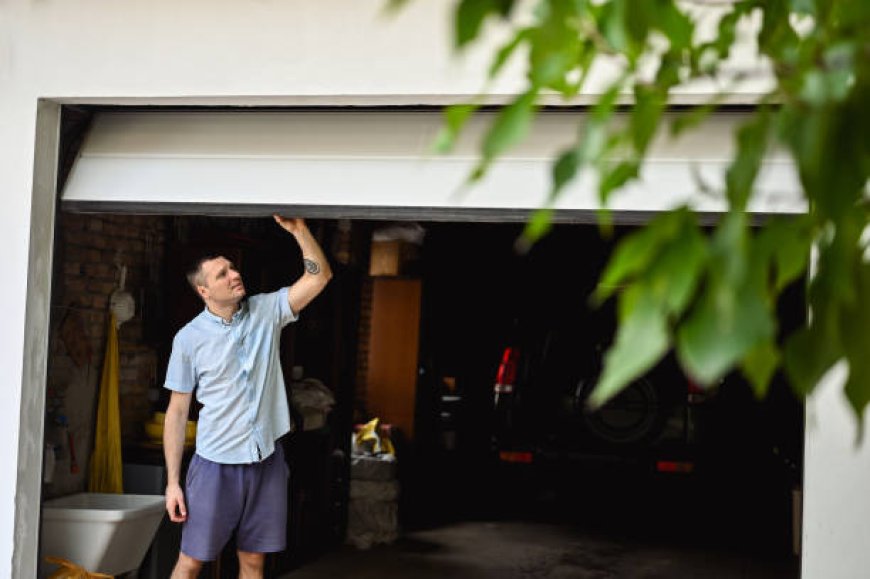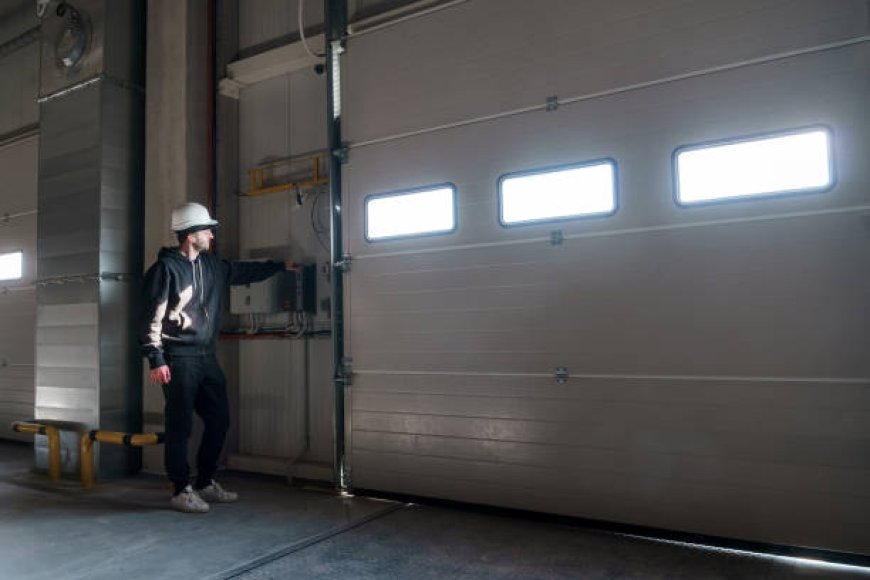How to Troubleshoot Common Issues with Your Home's Entry System
Your home’s entry system, including the garage door, plays a crucial role in providing security and convenience. If you're experiencing problems, it can be frustrating and inconvenient. Fortunately, many common issues can be easily diagnosed and fixed with a little troubleshooting. In this article, we’ll walk you through some common issues you might encounter with your home’s entry system and how to address them before calling a professional.

1. The Door Won’t Open or Close
One of the most common problems homeowners face is when the garage door won’t open or close. If this happens, check the power source first. Ensure that the opener is plugged in and that there is no tripped breaker. If the opener seems to be working, inspect the remote control. It might be as simple as replacing the batteries.
If the issue persists, check if the door is off-track or if there are any obstructions blocking the door's path. Sometimes, a small object like a piece of debris can stop the door from operating correctly. If these steps don’t solve the problem, it may be time for garage door opener repair, as the opener mechanism could be malfunctioning.
2. Unusual Noises When Operating the Door
Hearing unusual noises when your garage door opens or closes can be a sign that something isn't quite right. These sounds might include grinding, screeching, or popping noises. Most often, this is caused by a lack of lubrication on the moving parts, such as the rollers and springs. Applying garage door lubricant can fix this issue quickly.
However, if the noises persist after lubrication, there could be a deeper issue with the door’s components, such as worn-out rollers or damaged springs. In such cases, a professional can help determine the cause and suggest the right solution. Regular maintenance can prevent these issues from becoming more serious over time.
3. The Door Reverses Before Fully Closing
If your garage door reverses and opens back up before it’s fully closed, it could indicate an issue with the safety sensors. These sensors are designed to prevent the door from closing if an obstruction is detected. They might be misaligned or dirty, causing false triggers.
To troubleshoot this, inspect the sensors on each side of the door. Ensure they are aligned and clean, and that nothing is blocking their path. If cleaning and realignment don’t fix the problem, you may need to replace the sensors. A professional can check to ensure they’re properly functioning.
4. Remote Control Isn’t Working
A garage door that doesn't respond to the remote control is another common problem. Before assuming there’s a major issue, check the batteries in the remote. If replacing the batteries doesn’t work, check if the opener's antenna is in good condition and positioned correctly. A damaged antenna could affect the signal between the remote and the opener.
If these simple fixes don’t solve the problem, the issue could lie with the opener’s motor or wiring. In this case, professional help may be necessary. A technician can determine if the remote control needs reprogramming or if there’s an issue with the opener itself.
5. The Door Is Off Track
If the garage door comes off its track, it can’t operate properly. The door might appear crooked or even partially stuck in an open position. This issue can be caused by damaged rollers, a misaligned track, or even a malfunctioning spring.
It’s important to stop using the door if it’s off track to prevent further damage. Trying to force the door open or closed could worsen the problem. Professional repair services will realign the door and replace any broken components, ensuring safe and smooth operation.
6. The Door Is Moving Slowly
If your garage door is moving more slowly than usual, it could be a sign that the springs or opener need attention. Over time, the springs can lose tension, causing the door to move more slowly. Similarly, if the opener is malfunctioning or struggling to lift the door, it can affect the speed of the movement.
Check if the door moves smoothly by manually lifting it. If it’s hard to lift or feels heavy, the springs may be the issue. If you notice that the door is still functioning slowly even after checking the springs, garage door opener repair might be necessary to fix the motor or internal components of the opener.
7. The Door Won’t Stay Closed
If your garage door opens on its own or doesn’t stay closed, this could be due to a problem with the sensors, the opener’s motor, or the springs. The sensors might not be aligned correctly, causing them to send false signals. If the door does not close fully, the sensors may be detecting an obstruction that isn’t there.
It’s also worth checking the springs and cables. If the springs are broken, they can’t provide the necessary tension to keep the door closed. A professional can examine all components and repair or replace them as needed.
8. Lack of Power to the Opener
A garage door opener that suddenly loses power can stop the door from functioning. First, ensure that the opener is plugged into a working outlet. Check if the circuit breaker has tripped or if a fuse has blown. If the power supply seems fine, it could be an issue with the opener’s internal components.
A professional technician can troubleshoot the problem and repair any internal electrical issues. It’s crucial to address this promptly to avoid further complications or damage to the opener system.

9. The Opener Light Is Flashing
If the light on your garage door opener flashes, it could be signaling a problem. Many openers have a flashing light indicator that helps diagnose specific issues. A flashing light could indicate misalignment of the safety sensors, a malfunctioning motor, or an issue with the circuit board.
Check the manual for your specific opener model to understand what the flashing light means. If you can’t resolve the issue on your own, contacting a technician will help you identify the cause of the problem and restore your garage door to normal operation.
10. Regular Maintenance Is Due
If your garage door seems to be functioning fine, but you haven’t had regular maintenance, it’s a good idea to schedule an inspection. Routine maintenance includes lubricating parts, tightening bolts, and inspecting safety features. Having a professional perform these tasks regularly can prevent issues before they arise and extend the lifespan of your garage door.
If you’re unsure of what maintenance your system needs, many companies offer garage door supplier services that provide expert recommendations and regular upkeep to keep your door in top condition.
Conclusion
Troubleshooting common issues with your home’s entry system can be simple if you know what to look for. Many problems, such as misalignment, lack of lubrication, or power issues, can be resolved with a few quick checks. However, if the problem persists or is beyond your ability to fix, don’t hesitate to contact a professional. Whether it's a malfunctioning opener or misaligned tracks, expert repair services can ensure that your entry system functions smoothly and safely.
What's Your Reaction?




















![Safe Abortion pills[[+971521786258]] Doha Qatar/Ar Rayyan Qatar/Umm Salal Mu?ammad Qatar/Al Wakrah](https://news.bangboxonline.com/uploads/images/202501/image_430x256_679bc869b24fb.jpg)



